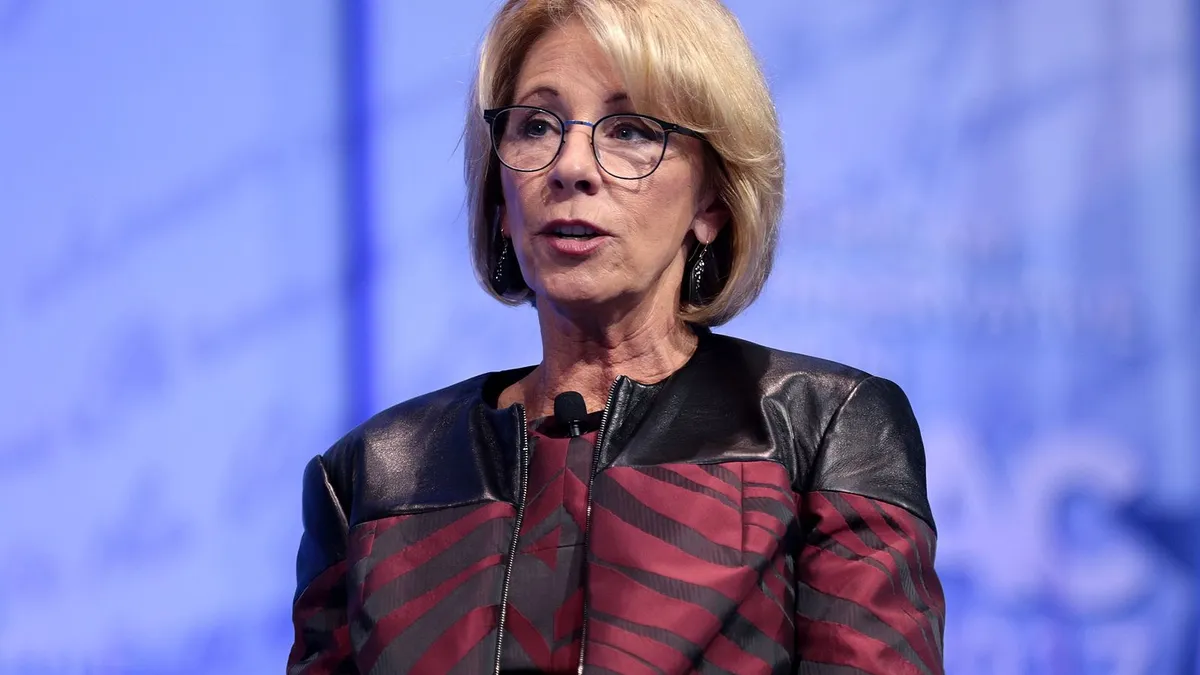Dive Brief:
- The U.S. Department of Education announced Wednesday it will focus on strict enforcement of Title IX in K-12 schools to address increasing incidents of staff-on-student and student-on-student sexual misconduct through greater oversight, data collection and resources for schools and families, according to a press release.
- The Office of Civil Rights (OCR) will conduct compliance checks of schools and districts to review how cases of sexual assault, including those involving staff, are being handled.
- In a statement included in the press release, Assistant Secretary for Civil Rights Kenneth L. Marcus said the number of K-12 sexual harassment and violence complaints filed with OCR has increased almost fifteen-fold over the past decade.
Dive Insight:
The new crackdown on Title IX compliance in handling incidents of sexual misconduct comes after two recent high-profile cases of districts enabling sexual misconduct in schools.
After a review that concluded last September, OCR found Chicago Public Schools failed to respond to complaints of sexual assault and abuse, including complaints that adults in the school system engaged in "sexual harassment, assault or grooming of students." The agency ordered the district to overhaul its policies after it failed to provide services and remedies for complainants, to notify victims of investigation outcomes, and to provide a safe environment for all students.
More recently, a former top New York City Department of Education official, David Hay, was arrested in December for facilitating child sex abuse. An investigation concluded earlier this week found holes in the city's background check system, which was backlogged by more than 6,000 pending checks, allowed Hay's lies about his disciplinary record to go undetected. A nondiscloure agreement between Hay and his former district in Wisconsin also shielded prior misconduct.
The "Prohibition on Aiding and Abetting Sexual Abuse" provision of the 2015 Every Student Succeeds Act (ESSA) technically prevents public school districts from enabling teachers who sexually abuse students to pursue another job with no record of their sexual misconduct (referred to as "passing the trash"). But a study released last year by the National Institutes of Health found it is "a common practice for K-12 school district administrators who fear legal liability and tarnished reputations."
Researchers found that only four states complied with the provision, and 39 states had no plans to create policy requiring compliance because they erroneously believed ESSA's provision took care of it. But the federal government, according to guidance, cannot force states into compliance.
According to the most recent numbers provided by the federal Civil Rights Data Collection, which date back to 2015-16, there were approximately 9,700 reported incidents of sexual assault, rape or attempted rape in public schools.
"We hear all too often about innocent children being sexually assaulted by an adult at school," U.S. Secretary of Education Betsy DeVos said in the press release. "No parent should have to think twice about their child’s safety while on school grounds."













